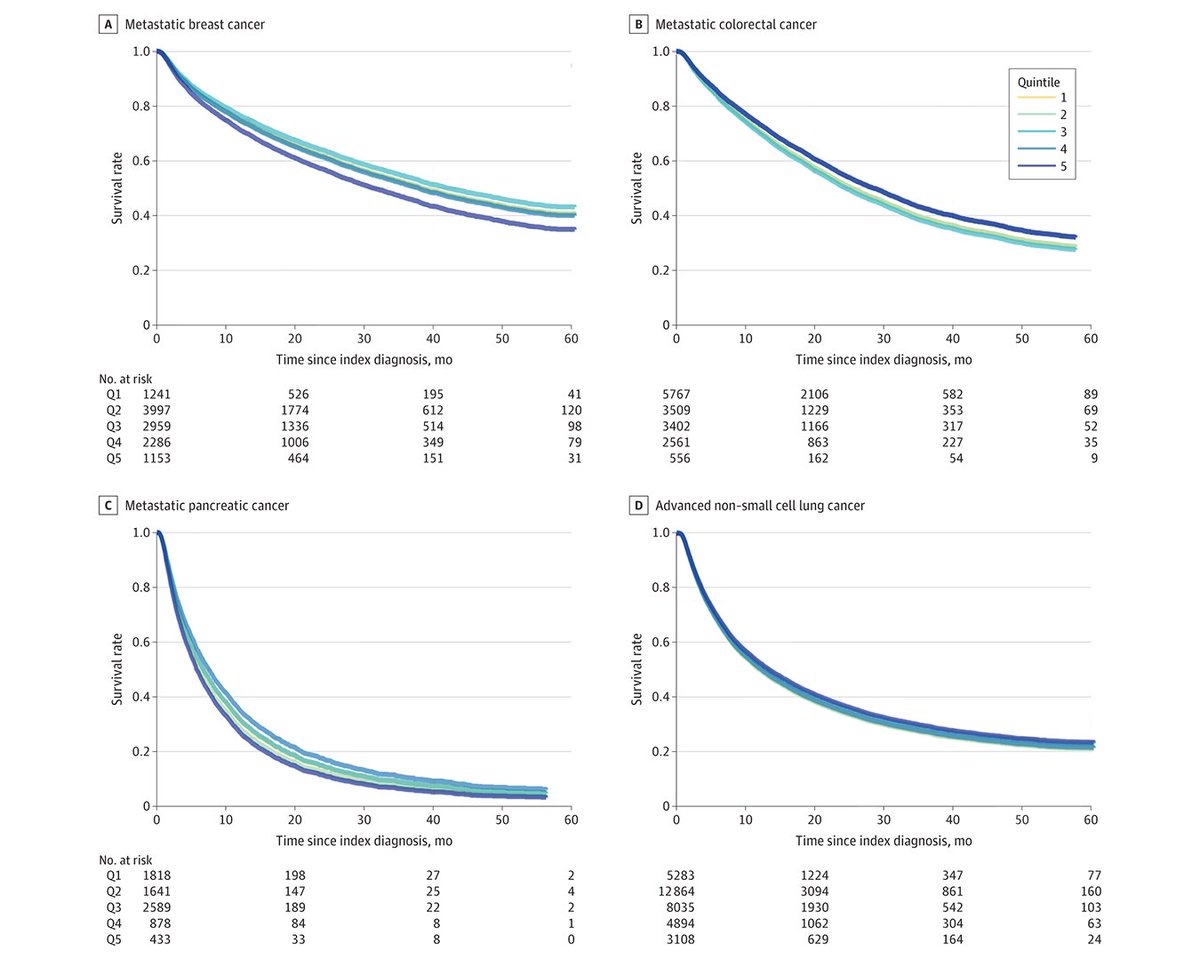
Kerin Adelson, MD, MHCDS
@drkerinadelson
Chief Quality and Value Officer, MD Anderson Cancer Center
ID: 1576302113155678208
01-10-2022 20:05:07
29 Tweet
59 Followers
14 Following

More aggressive use of systemic therapy near the end of life does not improve survival in 6 common solid tumors. Yale Cancer Center MD Anderson Cancer Center ASCO #ASCO23


New study shows that the use of systemic #cancer therapy at the end-of-life, a marker of low quality care, varies substantially across patient race, insurance type, and practice setting. Journal of Clinical Oncology Yale COPPER Center Yale School of Medicine Yale New Haven Hosp OncoAlert Smilow Cancer Hospital ascopubs.org/doi/abs/10.120…


Patient insurance, race, and whether they get treated at an academic setting, all influence whether they get chemo at end-of-life. (which they shouldn't, and which, they shouldn't) Great work by Dr. Canavan Kerin Adelson, MD, MHCDS Cary Gross Yale COPPER Center 🧵👇🏼 ascopubs.org/doi/full/10.12…









Kerin Adelson, MD, MHCDS breaking down the data related to OCM and if there is still benefit #ASCOQLTY23 MD Anderson Cancer Center



A bombshell of an article just published in JAMA Oncology by Cary Gross Yale COPPER Center and other colleagues. What a clever and smart way to look into this question. Read to see what I mean. Congratulations to all authors. jamanetwork.com/journals/jamao…


Most viewed in the last 7 days from JAMA Oncology: Is oncologic treatment of very advanced disease associated with improved survival? ja.ma/3UTyy8A
